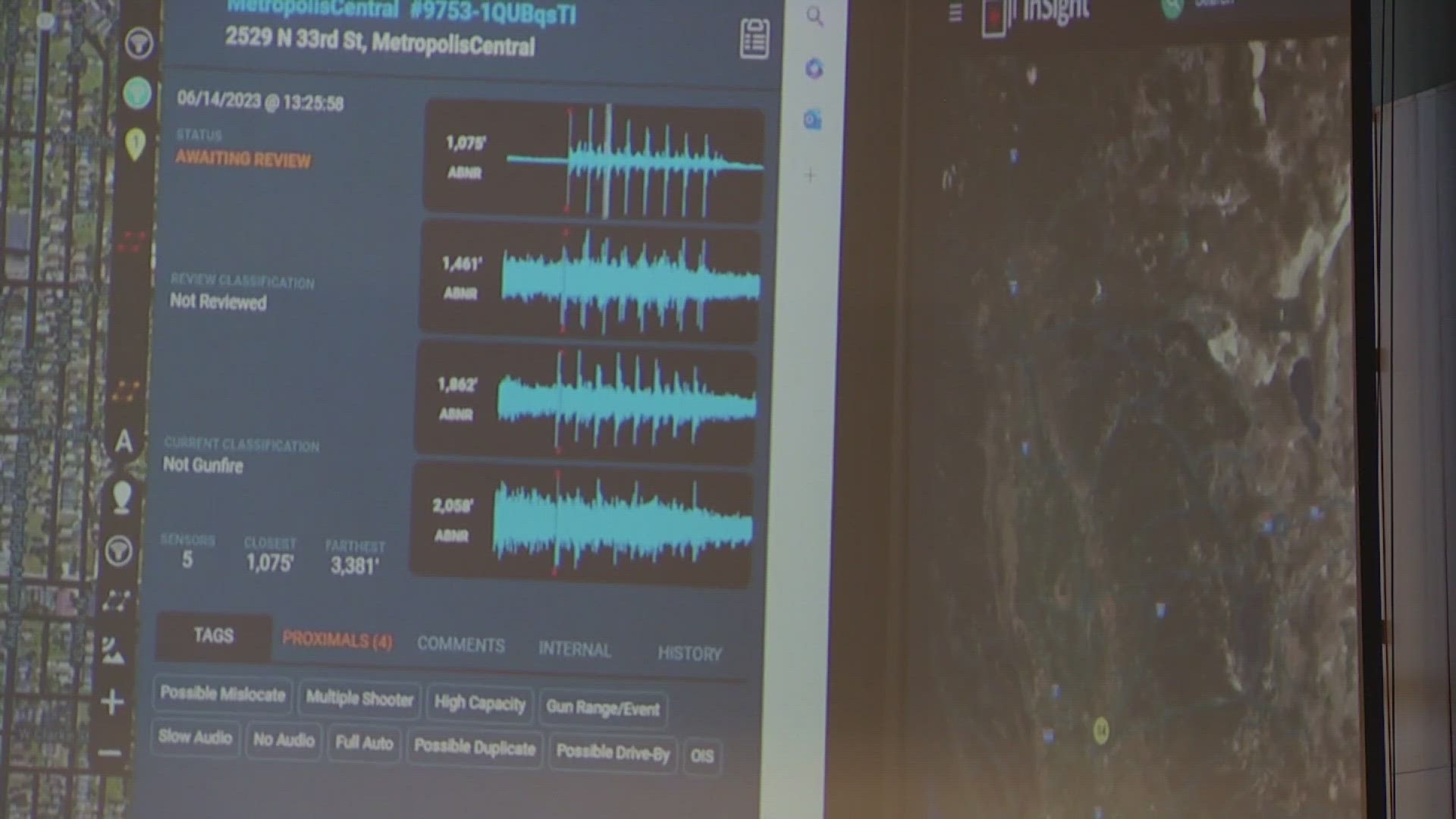TACOMA, Wash. — The Tacoma Police Department (TPD) will soon implement a controversial gunshot detection technology using grant money in an effort to combat gun violence.
ShotSpotter is a technology that uses artificial intelligence to detect gunshots and alert police to potential gun-related incidents.
TPD is able to pay for the technology with an $800,000 grant from the Bureau of Justice Administration. The department will test the technology as part of a pilot program.
According to a release from TPD, the program "will allow TPD to analyze the efficacy of the data before committing City funds to the program."
It is not yet known how long the pilot program will last or when it will be officially implemented.
The technology is designed to differentiate the sound of gunshots from fireworks or the backfiring of a vehicle so that police can get there quickly. There is also a network of people who vet the sounds detected and assess whether to forward them to the police.
On Wednesday, members of TPD and SoundThinking representatives held a community event to share more about the technology.
"It allows a police department to move swiftly, to look for an active killing scenario and to deal with that threat and to, more importantly, find the victim of that shooting and to render aid," said Alfred Lewers Jr. with SoundThinking.
The technology promises to dispatch police at the sound of gunfire faster than any person can call 911.
"A lot of times when you have random gunfire, there isn't a victim, but that's not a presumption that we as police can make – when we hear gunfire, we automatically assign a victim, so that's why it's critical," said TPD Chief Avery Moore.
According to SoundThinking, the company that owns ShotSpotter, more than 150 cities in the country currently use the technology. However, the technology has been criticized locally and nationally.
Late last year, the Seattle City Council voted against spending over $1 million on ShotSpotter, saying it can "hurt police response times, result in more racial bias, and violate people’s civil liberties."
Back in November, Councilmember Lisa Herbold, representing District 1 in Seattle, told KING 5, “My concern with ShotSpotter is it actually diverts necessary police resources, away from the interventions that are necessary for police.”
Multiple cities across the country, including Chicago, New Orleans, San Antonio, and Atlanta, have ended contracts with ShotSpotter. Some cited high costs, inefficiency, and, in some cases, poor results.
ACLU Washington Technology Policy Program Director Tee Sannon says cities in Washington should not test the tech due to it being "ineffective and dangerous."
"Automated gunshot location systems like ShotSpotter do not reduce gun violence, and instead, they fuel racial disparity in policing and disproportionately harm Black and Brown communities," Sannon said in a statement to KING 5. "Through an extensive network of microphones placed in neighborhoods, this surveillance technology also poses risks to people’s privacy and civil liberties, and can chill free speech and deter free association."
It's not just about a police response during a shooting. Moore says the data will be collected, and staffing levels could be adjusted based on the frequency and locations where gunfire is most often detected.

